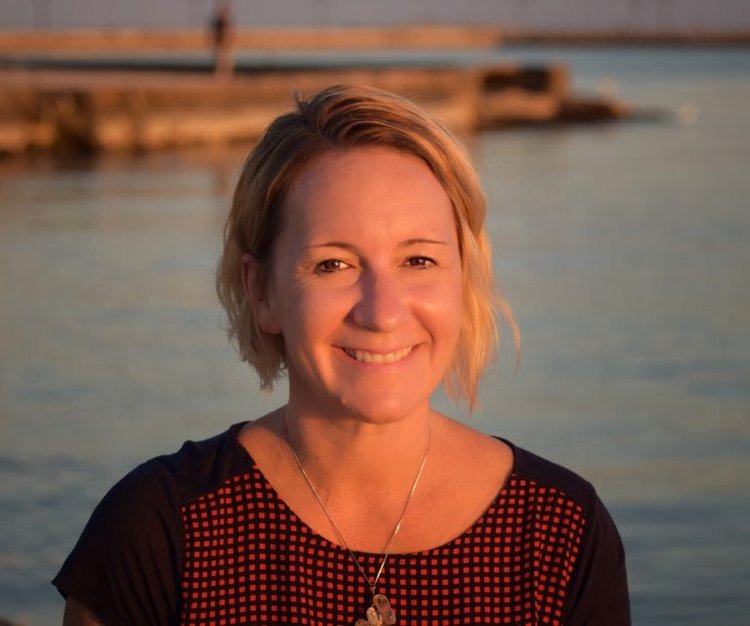RuraLead is a network of organizations that support rural and Indigenous leadership development. Rural leaders are the head and heart of rural communities—they are often the difference between whether a community flounders or flourishes. During the pandemic, RuraLead went on a learning journey throughout rural America. Over the course of 18 months, we conducted 100-plus interviews with rural and Indigenous stakeholders, developed an inventory of nearly 400 rural leadership development efforts, held four regional events exploring rural leadership, and hosted a culminating national summit of rural and Indigenous leadership development practitioners. RuraLead explored how rural leadership development can evolve, and how different sectors can work together to advance rural equity, development, opportunity, and prosperity.

Overarching Findings
Three imperatives that emerged from the RuraLead Initiative
Support and develop rural leaders guiding local change.
Rural people are resourceful and innovative, and the development of local community-based leaders working together is critical to overcoming the complex challenges they face.
A key to helping rural places thrive is to develop a critical mass of local people who hold a vision and are ready to take action.
Rural communities have inherently fewer people: the development of new leaders must be intentional, inclusive, and sustained.
Rural people often don’t identify with the word “leader.” They are someone with an idea, or who had no other option but to take action.
Rural leaders learn by doing and are results-driven.
Support the advancement of equity in rural places through leadership development.
There is a deep need for strategies and programs that create opportunities for all people in rural places, particularly those who have been traditionally left out of leadership roles.
Diverse representation is lacking in leadership, both in rural and urban communities. Rural leadership development efforts must strive to eliminate barriers that prevent the full participation of all community members.
Rural community members are each other’s best resources—they depend upon each other for safety, care, and support. There is a need to understand how inequities have been embedded in our systems, and to design solutions that build community solidarity.
There is limited access to Diversity, Equity, and Inclusion resources and trainings in rural areas. There is good work to build on as we design and deliver new resources to match the cultures and contexts of rural places.
Make the right investments in rural America.
The way money and resources currently flow into rural communities is flawed. Only 6% of philanthropic investments go to rural efforts. Steps must be taken to close the rural equity gap.
Rural communities face our most challenging issues, and are severely underserved by federal dollars and national philanthropies.
General-purpose funding is needed in rural communities. Issue- and project-specific funding create unnecessary barriers in small communities that have cultures of stronger relationships and fewer resources.
The need for capacity building and technical assistance in rural areas cannot be overstated.
Disaggregated rural data is lacking. It can help advance better policies and practices that can improve rural well-being.
Rural Development Hubs and intermediaries provide an opportunity for funders to help meet rural needs.
Outstanding Questions
RuraLead highlighted the opportunity to foster real change in rural communities through equitable leadership development. We brought together the vast field of rural leadership development for the first time, and made strides toward building a nationwide network of practitioners. Work remains to be done to sustain and grow the network, and to provide continued opportunities for peer learning and collaboration, including dedicated spaces for BIPOC practitioners.
There is substantial interest in moving forward as a rural leadership development field to collectively address lingering questions, such as:
How do we best integrate equity into all rural leadership development?
How can we work toward changing the rural narrative?
How do we go about engaging new philanthropic partners to devote long-term resources to proven and innovative strategies for growing and sustaining rural leaders?
How do we bridge the divide between leaders of different ages, backgrounds, or political affiliations through actionable opportunities?
Sustained participation, collaboration, and funding will be crucial.
Lead Contacts
Heidi Khokhar
Executive Director, RDI
hkhokhar@rdiinc.org | 458-215-8396
Heidi’s RDI journey began in 1998 when she assisted on several community strategic plans and discovered her passion for helping rural communities thrive. She participated in RDI’s Rural Futures Forum where she fell in love with the transformational power of leadership development. Over the years, she has worked directly in over 50 rural communities in the Pacific Northwest and with a vast network of rural leaders through RDI’s Rural Community Leadership Program. She helped design, deliver, and author the leadership program and managed the highly engaged volunteer leaders who make up the Community Ambassador Team. She is committed to RDI’s vision of vibrant, diverse rural communities as a result of skilled, inclusive local leadership and robust community-led efforts.
Freya Hendrickson
Impact and Networks Manager, RDI
fhendrickson@rdiinc.org | 458-215-8396 x4
Freya’s background includes nonprofit program coordination, research, and educational administration. She is happy to have the opportunity to draw on each of these experiences in her role as RDI’s Impact and Networks Manager. Her current projects include coordination of the national RuraLead Initiative, the Ready, Set, Grant Program, and the Rural Civic Engagement Project. She happily spends her free time hiking, camping, visiting local wineries, and generally exploring all that beautiful Oregon has to offer.






